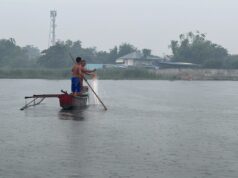Why basic education is a legacy-making issue
By Michael Henry Ll. Yusingco
FROM ABOUT THE EARLY 1970s to the mid-1980s, both the Philippines and South Korea were under brutal authoritarian regimes. Filipinos ousted the dictator Ferdinand Marcos via people power in February 1986, which coincidentally was the watershed event that inspired South Koreans to remove their own despotic leader.
It is worthy to point out however that when South Korea transitioned to democratic rule in 1987, they were already fully prepared to host the Summer Olympic Games in 1988. Whereas when Marcos and his cronies were deposed, the Philippines was left bankrupt and deep in debt. Indeed, Filipinos are still suffering from the devastation Marcos wreaked on the country during his dictatorship.
The disparity in economic development between the two countries since embarking on their respective constitutional democratic path is stark. For instance, for the past decade South Korea has been fully entrenched in the Very High Human Development category of the United Nation’s Human Development Index while the Philippines has been stuck at the Medium Human Development tier.
The blueprint for South Korea’s successful nation-building model is no secret. In his book Diamond Dilemma, author Tariq Hussain wrote:
“Asked to explain the reasons for Korea’s rapid economic ascent, economists will provide different interpretations. Broadly speaking, the two mains schools are the neoclassical view, which focuses on competitive export industries, and the revisionist view, which points to the role of the government in picking and pushing national champions. Both claims are valid in a sense but both fail to sufficiently recognize the real creators of modern Korea. Ultimately, it was the Koreans themselves who were responsible for making the world take notice of their country.”
Moreover, in their book, South Korea Since 1980, authors Uk Heo and Terrence Roehrig explained:
“Because of South Korea’s heavy investment in education and miraculous economic development, the World Bank describes South Korea as follows: “Korea’s successful knowledge-based development experience offers many valuable lessons for developing economies. The country has invested heavily in education and training, boosting innovation through intensive research and development, and developing modern and accessible infrastructure.””
Clearly, to view the population as the main driver of economic development entails giving education, both formal and technical-vocational, unprecedented premium. South Korea has done this even under their dictatorial leaders.
Filipino politicians on the other hand, have always treated the people as a collection of ignorant and impoverished citizens begging to be “saved.” Hence, public education has always been tied to patronage politics.
If genuine change is to happen in President Rodrigo R. Duterte’s term of office, his administration must treat Filipinos as a critical economic resource. Not simply the passive recipient of progress, but its main driver. And in doing so, the trajectory of the country’s population growth requires putting significant attention on basic education.
The population of the Philippines by 2020 will be 110 million. More critically, the school age population (0-19 years old) of the country will be around 44 million.
By 2045, the same demographic will be around 41 million. This means that Filipinos who are currently in elementary and high school will be responsible for roughly the same number of citizens 25 years or so down the line.
Consequently, the attention given by government to the education system particularly on the K to 12 framework must change. Basic education must be given more importance in the national human development plan.
In this regard, this caveat from respected BusinessWorld columnist, Filomeno S. Sta. Ana must be reiterated here:
“In this case, it is more equitable to use the bulk of the new money for services that will mainly benefit the poor — say K to 12 programs or public health programs. The argument to give resource priority to basic education gains more weight since it is the bedrock of higher education. Poor basic education results in ill-prepared students for tertiary education, Sadly, it is the poor who have a hard time meeting the standards for higher education, precisely because the preparatory work they get is inferior.”
Pertinently, one of the key findings of Working Paper 17-005 of the Ateneo School of Government entitled, K-12: Sustaining Education Under the Duterte Presidency, is very relevant:
“Political will, especially at the grassroots level, is necessary to sustain the gains as well as overcome implementation challenges of K to 12.”
South Korean leaders have always shown political will specially when it comes to the economic development of their country. Of course, their ways have not always been benign and trouble-free but the impact of their focus and determination on the economic performance of South Korea through the years is undeniable.
Mr. Duterte has consistently been promoted by his supporters as a leader who possesses the political will to do what is necessary for the good of his people. While at times his methods have been seen by some as controversial, his doggedness on doing right by the Filipino people can also be an asset.
Obviously, the president faces a very tough challenge when it come to the country’s basic education system. But promises of more classrooms and textbooks will definitely be not be enough. Neither are simplistic statements such as, “The quality of education is directly related to spending for education.” And public school being free does not automatically translate to Filipino youths being inside classrooms and learning.
The Duterte administration can project the status quo to 2045 by doing absolutely nothing and just blindly hope that Filipinos can overcome the surrounding difficulties that they will surely face. Or his government can institute radical reforms to ensure a truly high quality basic education for the Philippines in 2045 and beyond.
Jose Rizal in Manifesto to Certain Filipinos wrote: “Fellow countrymen: I have given many proofs that I desire as much as the next man liberties for our country: I continue to desire them. But I laid down as prerequisite the education of the people in order that by means of such instruction and work, they may acquire a personality of their own and so become worthy of such liberties. In my writing I have recommended study and the civic virtues, without which no redemption is possible”
For Mr. Duterte then, improving the quality of basic education in the Philippines is a legacy-making issue.
Michael Henry Ll. Yusingco is a lecturer at the Institute of Law of the University of Asia and the Pacific and Non-Resident Research Fellow at the Ateneo School of Government.



